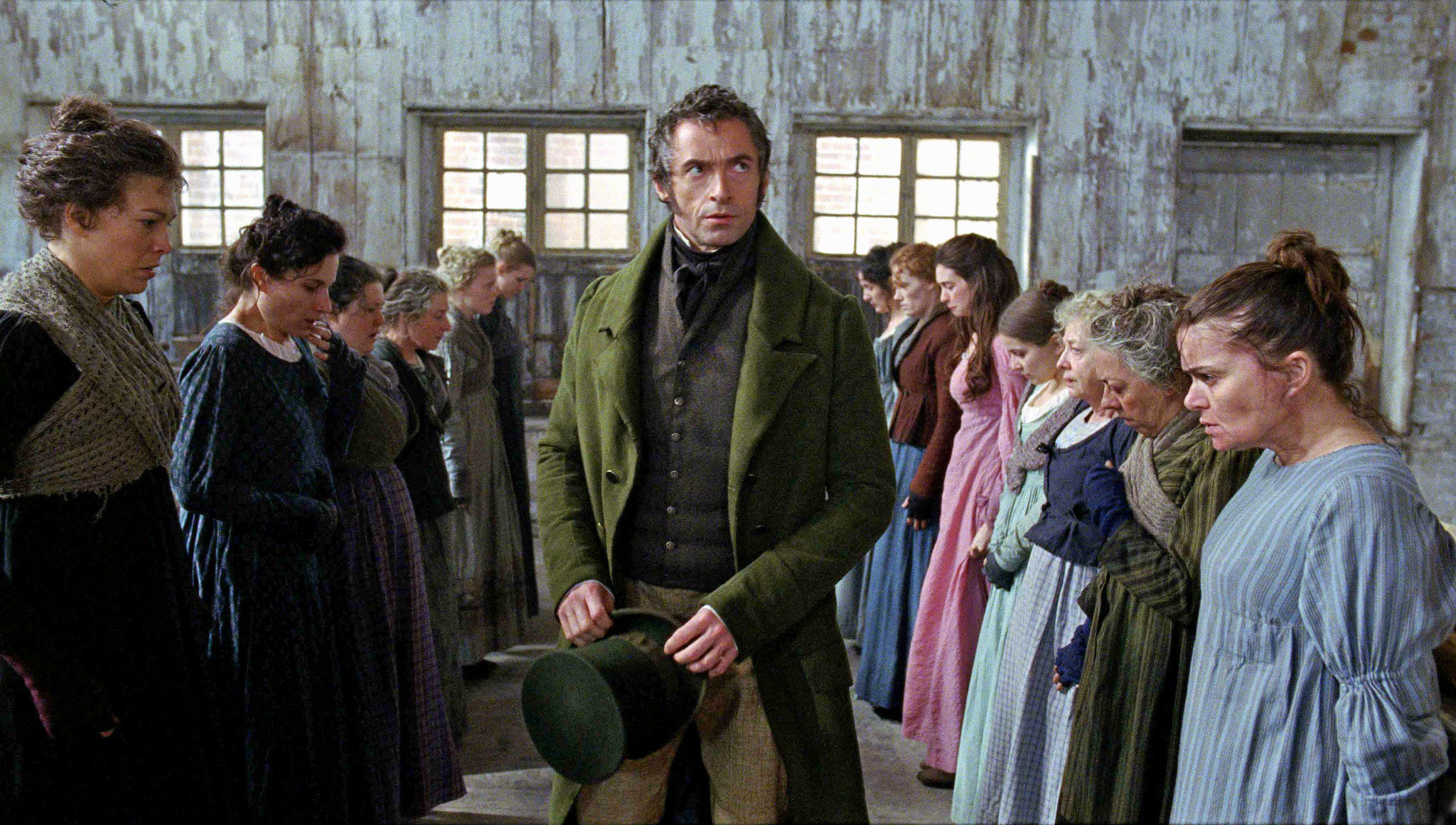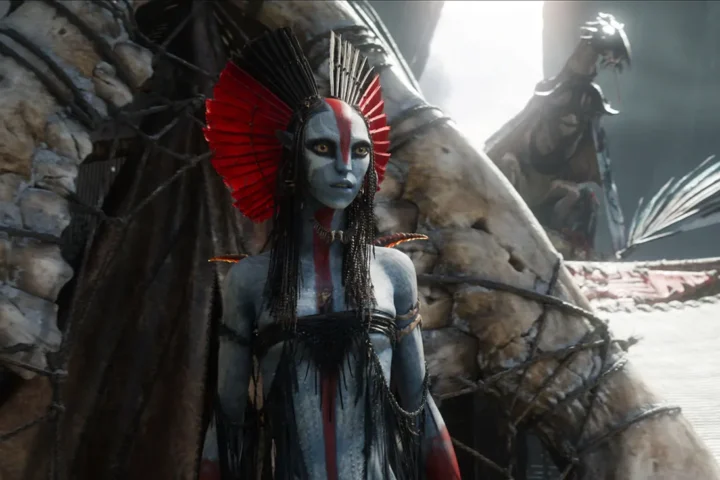The screen version of the musical Les Misérables is pretty much what you would expect and a fairly straightforward adaptation of the beloved musical, itself adapted from Victor Hugo’s classic novel.
As mounted by director Tom Hooper, the picture has the look, feel and thematic resonance of an epic–large enough in scope yet intimate in execution—in telling the story of petty thief Jean Valjean (Hugh Jackman, finally showing his musical chops after a very successful musical theater career), who after nineteen years of incarceration, breaks parole only to experience a spiritual conversion and become savior to a the fallen seamstress turned prostitute Fantine (Anne Hathaway in what can best be described as an on-camera nervous breakdown), harboring an illegitimate daughter, Cosette (who grows up to be Amanda Seyfried), for whom Valjean becomes guardian and father.
Cosette has previously been left in the care of the Thenardieirs (Sacha Baron Cohen, Helena Bonham Carter), buffoonish con artists whose own daughter, Eponine (Samantha Barks) becomes a street urchin and best friend to Marius (Eddie Redmayne), the leader of the student revolutionaries at the Paris barricade.
And then there’s Inspector Javert, the duty-bound police officer who has tracked fugitive Valjean for decades, played by Russell Crowe in fine rock-n-roll voice (admittedly not classically trained) and with passion, as the tragically flawed lawman, at least as interesting a character as Valjean and never more than in the final analysis where he is forced to reconcile his identity with the man he so despises, inextricably linked.
The weaknesses of the narrative—namely a wan Cosette who does little but pine for Marius (a simplistic love story) and the heavy-handed emphasis on God’s grand plan—never seemed such onstage but in this big screen amplification the lightness is apparent.
Indeed some of Hooper’s framing choices are less than inspired, namely mounting Eponine’s beloved, longing soliloquy On My Own in a simple close-up on a rain slicked street and a literal, static Empty Chairs at Empty Tables, a survivor’s guilt apologia well-sung by Redmayne also in extreme close-up. But the class discussion in Les Misérables which finds the downtrodden, working class, homeless and common man believing in a better day, works quite well in the picture’s rousing version of Do You Hear the People Sing?
Such shortcomings of imagination mar an otherwise good movie, one that only intermittently offers visual invention, as in the opening scene featuring scores of emaciated prisoners pulling a ship to land. The movie needs more of this larger canvas spirit than it gets; the focus here is on feelings, and the requisite scale doesn’t quite punch through.
The film’s best performances come, no surprise, from musical theater stars Barks, who has played empathetic Eponine onstage, and the wonderful Broadway star Aaron Tveit, as Enjolras, Marius’ second in command, radiating authority in the film’s second half.
This version of Les Misérables isn’t a masterpiece and doesn’t necessarily sweep as it might have, given the tight close-ups which sometimes constrain the actors, but the sum of the parts make for a compelling and emotional enough ride.
3 stars.



